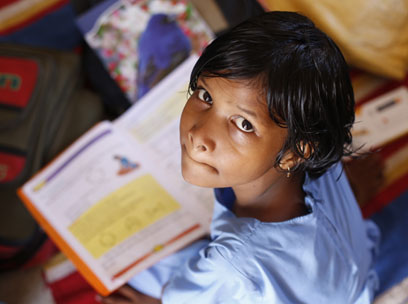Education stands as the bedrock of a nation’s advancement, and within India, there’s been a significant spotlight on foundational literacy and numeracy, particularly within rural regions. Foundational literacy encompasses the basic skills and knowledge children must grasp early in their educational journey, including phonics, vocabulary, and comprehension, while numeracy involves effectively understanding and working with numbers. According to a World Bank study, a staggering 56.1% of children under 10 struggle with reading basic text. ASER research echoes this, pointing to deficiencies in both reading and fundamental arithmetic, like subtraction. These gaps in foundational learning are evident in declining performance on 2021’s National Achievement Surveys (NAS) as students advance grades, with average math scores dropping from 61.2% in Class 3 to 56.8%, 51%, and 44% in Grades 5, 8, and 10, respectively. Recognizing this urgency, the 2020 National Education Policy (NEP) prioritized foundational learning and introduced the NIPUN Bharat initiative, aiming for 100% foundational literacy and numeracy skills for Grade 3 students by 2027.
The 2023 ASER report delves into the education status of 14-18-year-olds across India, revealing that while 85.6% of this demographic attend school or college, many lack basic reading and math skills. The report emphasizes the necessity of enhancing these skills as students progress through grades. Foundational literacy and numeracy initiatives in schools are crucial, as they lay the groundwork for academic success, equip students with essential life skills, enhance employability prospects, bridge achievement gaps, and ensure equitable opportunities for all learners. These initiatives furnish students with the fundamental skills required to grasp complex subjects, handle daily tasks, and excel in the workforce, ultimately positioning them for success in academics, careers, and life.
In a country as diverse and populous as India, ensuring robust foundational reading and numeracy skills is essential for initiatives like the Smart Village Movement and its partners to construct a sturdy educational base and promote socio-economic development, particularly in rural areas.
The Importance of Foundational Literacy and Numeracy
Foundational literacy and numeracy serve as the building blocks for all future learning and academic triumphs. Students can comprehend more advanced concepts across various subjects with a firm grasp of basic literacy and numeracy skills. The need for a robust foundational learning framework becomes even more critical in India’s rural areas, where access to quality education and resources is often restricted. Children in rural communities confront numerous challenges, including inadequate infrastructure, shortage of qualified teachers, and socio-economic inequalities. Addressing these challenges starts with ensuring every child receives quality foundational education.
Addressing the Learning Gap
One of the primary reasons foundational literacy and numeracy are so crucial in rural India is the substantial learning gap among students. Many children enter primary school needing more basic literacy, numeracy, and reading skills. This gap widens as they progress through the education system, making it increasingly arduous to catch up with their peers. Students grapple with the frustration and demotivation of perpetually trailing behind, unable to fully engage in the classroom, ultimately leading to early dropout rates. Educators can bridge this gap by prioritizing foundational literacy and numeracy from the early years of schooling and furnishing students with the necessary skills to excel academically.
Empowering Students for Future Success
Robust foundational literacy and numeracy skills empower students to excel academically and navigate real-life situations confidently. In rural areas where agricultural activities are prevalent, numeracy skills are essential for land measurement, yield calculation, and financial management. Additionally, foundational literacy skills enable individuals to access information, communicate effectively, and participate meaningfully in society. By equipping students with these foundational skills, we prepare them to become informed citizens and active contributors to India’s socio-economic development.
Unlocking Opportunities for Growth
Investing in foundational learning and numeracy in rural areas is a matter of social responsibility and an economic imperative. A well-educated workforce propels innovation, entrepreneurship, and economic growth. By ensuring children in rural communities receive quality education, we unlock their potential and create opportunities for socio-economic advancement. Moreover, an educated population is better equipped to address pressing challenges such as poverty, inequality, and environmental sustainability, fostering holistic development.
When children receive quality education, they are more likely to stay in school, complete their education, and pursue higher studies or vocational training. This, in turn, leads to higher employment rates, increased income levels, and improved living standards within the community. Additionally, educated individuals are better equipped to make informed decisions about their health, sanitation, and overall well-being, resulting in healthier, more resilient communities.
By prioritizing these fundamental skills, we empower children in rural communities to realize their full potential and contribute meaningfully to the nation’s development. Investing in quality education for all children, regardless of their socio-economic background, is not just a moral imperative but a strategic investment in India’s future prosperity and sustainability. Through collective efforts and sustained commitment, we can ensure equitable access to quality education and build a brighter future for coming generations.





